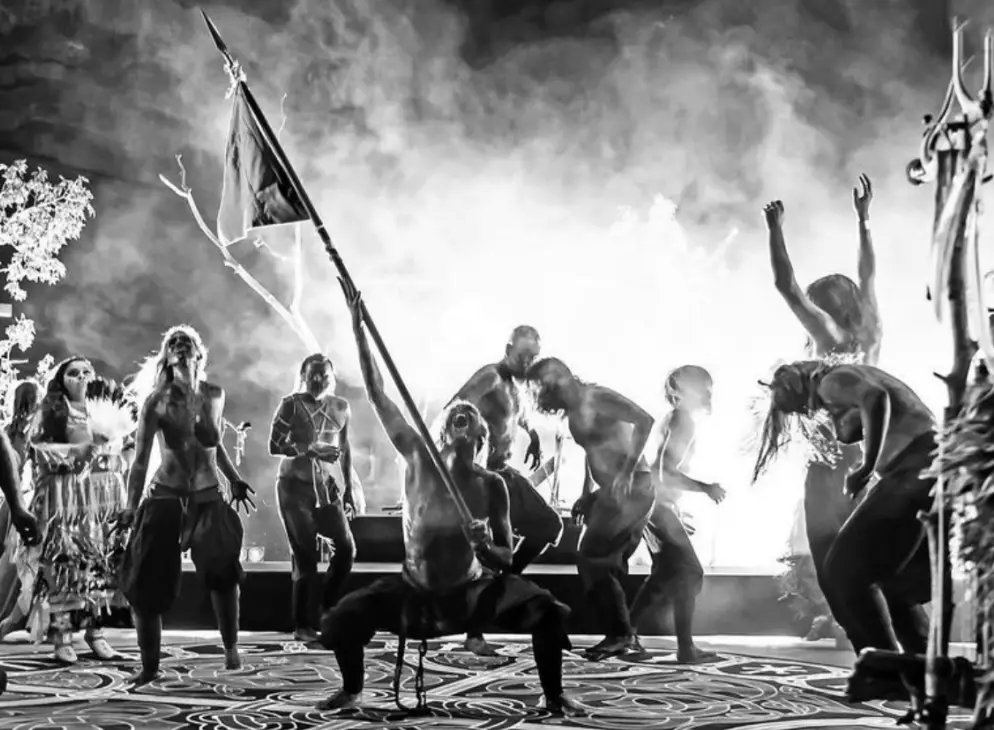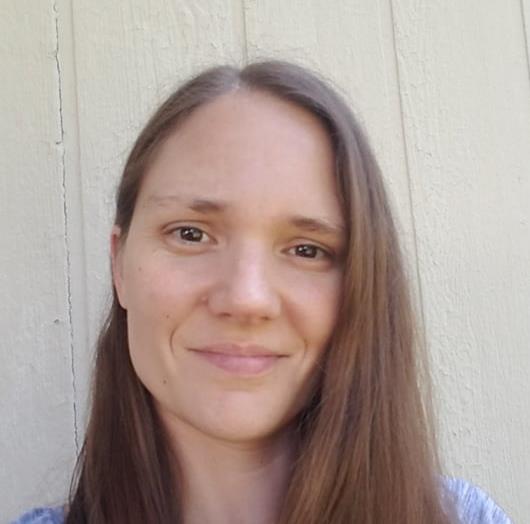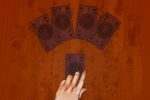Through darkness and fog, a light gleams on the stage. Sounds of running water and whistling birds play in the foreground. One by one, Heilung walks onto the stage wearing antlers, furs, robes and tunics from olden times. They join hands and form a circle. Another figure appears carrying a large bird’s wing in his right hand and a chalice in his left. Smoke rises from the chalice. Using the bird’s wing, he disperses it over the throng, then over the group. The smudging ritual completes, and he joins the circle. The sounds of water and birds go silent. The leader speaks aloud while the rest of the band echoes his words:
Remember that we all are brothers
All people
And beasts and trees
And stone and wind
We all descend from the one great being
That was always there
Before people lived and named it
Before the first seeds sprouted
The circle releases and each member takes their position as most of the light fades away — only a single lantern shining from the center stage. Moments later, a horn gently resounds, signaling the ritual’s start. Two figures, the lead singers, appear. Both don a headpiece made of antlers. The man holds a mic while the woman carries a drum of animal skin. They stand in silence for a moment, eyes closed. Then the man opens his eyes, raises the mic to his mouth, looks up, opens his mouth wide and says at the top of his lungs, “HARIGASTI TEIWA!” You hear the pounding of drums and the Heilung ritual begins.
Heilung performs their music in English, German, Icelandic, Latin and Viking-age Old Norse. People have categorized them as experimental folk, experimental folk-metal, pagan, rock, etc. But Heilung prefers to call their music “amplified history.” Inspiration for their music comes from Germanic tribes during the Northern European Bronze and Iron Ages and the Viking era. Their lyrics come from rune stones, runic inscriptions found on various artifacts, Icelandic poetry, and text from the Bronze, Iron and Viking Ages. The word heilung means “healing” in German.
Heilung is a Danish band, but the three creators originate from different locations in Europe: Christopher Juul from Denmark, Kai Uwe Faust from Germany and Maria Franz from Norway. Juul is the owner of Lava Studios Copenhagen and is a composer and multi-instrumentalist for Heilung, Euzen and Songleikr. Kai is a storyteller, poet and tattoo artist who writes the lyrics and is one of the two lead singers. Franz is a lead vocalist for Heilung, Euzen and Songleikr.
Earlier this year, the world of metal embraced Heilung as one of their own, and the band appeared on the front cover of the 2021 issue of Metal Hammer magazine. Even though the style of Heilung is far from what most consider metal, the combination of their distinctive style, Faust’s skills in Tibetan throat singing and Franz’s profound studies in traditional Norwegian singing techniques makes them more metal than anything else.
One of the many aspects that makes Heilung so unique is their use of real human bones, animal bones and animal hides with their costumes and instruments. The band uses a type of drum called a blot, which is made from horse skin and painted with human blood; other drums have deer hide and goatskin. Other parts include deer bones, a buffalo horn rattle, a clay rattle with human ashes, a human forearm bone, a Hindu ritual bell, antiques from temples, a reconstructed silver cup from the Viking Age and an ancient Indian instrument made of numerous rattles, whistles and percussive instruments called a ravanahatha.
All three creators of Heilung share paganistic spiritual beliefs. Juul is the son of a Godi (Norse pagan priest), while Faust and Franz both grew up with strong interests in Germanic paganism. They intend for their music to produce a trance or meditative experience for their audience. A Heilung performance is considered a ritual meant to reconnect the present people with their roots, ancestors, the Earth and each other.
During an interview with New Noise, Heilung said, “We as a species have never been more disconnected and ruthless toward our habitat. I believe that, at this time more than ever, it’s important that we see ourselves as one species. Origin: Earth. Species: human. Music is helping us toward this feeling of unity, and the good forces fighting for our survival need to stay united to stand a chance. The past is like the roots of a tree, needed to bring life to the branches, the future.”
Heilung released their first album, “Ofnir,” in 2015 with nine songs. “Ofnir” is one of the many names for the Germanic god Odin. A majority of the inspiration for the songs on this album came from preserved rune inscriptions found in both weapons and armor. As such, “Ofnir” has a masculine tone, focusing on war and masculine beliefs. Video game developers Ninja Theory used the song “In Maidjan” from this album for their game “Senua’s Saga: Hellblade II,” which was revealed in 2019.
Similar to “Ofnir,” Heilung’s second album, “Lifa,” came out in 2017 with nine tracks. The word “lifa” is of Icelandic origin, and it means “to live,” or “life.” This album is a compilation of songs from “Ofnir” and the band’s subsequent album, “Futha.” The main difference with this album is that it’s a live recording of their performance at Castlefest — hence its name.
“Futha,” Heilung’s newest album, came out in 2019. Like its predecessors, the album contains nine songs. “Futha” is the feminine counterpart to “Ofnir,” focusing on the healing powers and wild strength of the female. There is no known translation for the word “futha,” but according to one of the theories they researched, Heilung believes it relates to fertility and the female gender.
Heilung offers a ritualistic musical experience like no other. They send their listeners on a spiritual quest that leaves most feeling transformed spiritually. Rock and Roll Globe said Heilung was “the must-see band of 2020” and called them “The Flintstones from hell.” Feel the raw and primal sounds of Heilung by listening on YouTube, Spotify, Pandora, Apple Music or iHeart Radio. To learn more about Heilung, follow them on Facebook, Instagram and YouTube.

















